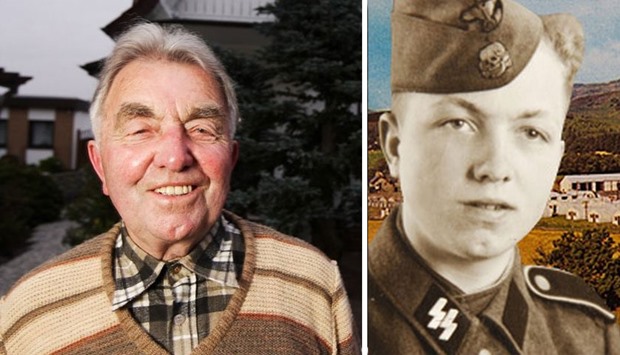A former Nazi prisoner of war has left his entire estate in his will to a small village in Scotland to show his appreciation for the kindness he received there during his captivity.
Heinrich Steinmeyer, a Waffen SS soldier during World War II, was captured in France and held in the Cultybraggan POW camp near Comrie in the Scottish highlands, where the 19-year-old received an unexpectedly warm welcome.
The acts of kindness began when local children reportedly befriended him through the fence and smuggled him out of the camp to watch a film at a nearby cinema.
"Throughout his captivity, Heinrich Steinmeyer was very struck by the kindness shown to him by Scottish people, which he had not expected," said Andrew Reid of the Comrie Development Trust, which will administer the legacy fund worth £384,000 ($489,000, 458,000 euros).
The former German soldier stayed on to work in the Perthshire village for a time after the war and later returned to visit, making lasting friendships, said Reid.
"He vowed to leave everything he owned for the benefit of older people in the place he wanted to thank," Reid added.
Steinmeyer died in 2013, aged 90, a fortnight after the death of George Carson, a close friend he had made in the village.
However, his estate has only now been settled following a lengthy legal process in Germany.
In his will, cited by the Comrie Development Trust, Steinmeyer said: "I would like to express my gratitude to the people of Scotland for the kindness and generosity that I have experienced in Scotland during my imprisonment of war and hereafter."
The money from the sale of his house and possessions will be spent on services for the elderly in the area, to be determined by members of the local community.
Carson's son, also called George, described his father's friend as "a wonderful man".
"It sounds like an unbelievable story but it's absolutely true," he told BBC Radio 4 on Saturday, recounting how his mother and her friends befriended the prisoner through the camp fence.
"They discovered that Heinrich had never seen a moving picture, so," dressing him in a school uniform, "they smuggled him out of the camp through the chain-link fence and into the cinema where he saw his very first film... He was absolutely blown away by the whole experience."
"Mr Steinmeyer always maintained he was lucky to be captured by the Scots," said Reid.

Heinrich Steinmeyer when he was 90 year old and was 19, during World War II days.
